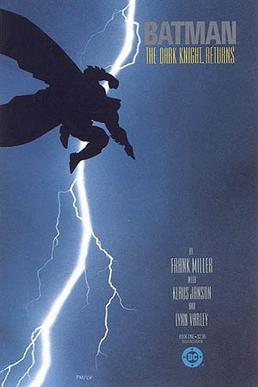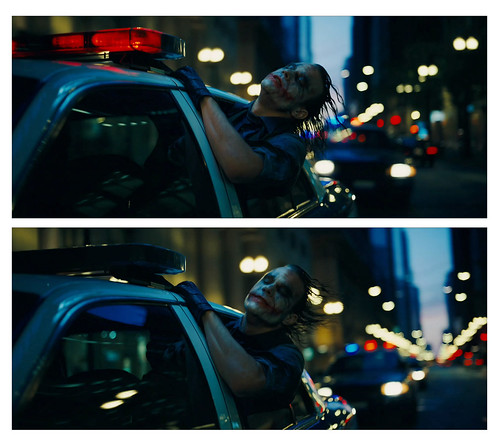 The question of “evil” and what exactly we as society and as individuals are supposed to do about it is one that has haunted everyday conversations for quite some time now. In a post-911 world, replete with hooded POWs having their heads hacked off and humiliated Abu Ghraib prisoners having their genitals shocked, the Jack Bauer–fueled belief that “the ends justify the means” has never been more hotly debated.
The question of “evil” and what exactly we as society and as individuals are supposed to do about it is one that has haunted everyday conversations for quite some time now. In a post-911 world, replete with hooded POWs having their heads hacked off and humiliated Abu Ghraib prisoners having their genitals shocked, the Jack Bauer–fueled belief that “the ends justify the means” has never been more hotly debated.
Or has it? In truth, it was a bit of a shock to read Batman Begins for the first time this past spring and realize it was first published in 1986. An atta-boy president who loves his ranch? Check. Escalating class tensions? Check. And above all else, a constantly prattling, fear-mongering media? Definitely a check there.
It’s easy to see why the Batman franchise of the ‘80s was practically screaming for yet another big screen adaptation some twenty years later.
And yet, at the risk of sounding like some stuffy censorship bureau critic, I can’t help but wonder at the message that’s being discussed through our society’s current fondness for all things Batman.
But wait! I just uttered the dreaded “m” word. As much as postmodernists may want to distance themselves from the loaded term, “discussion” simply doesn’t do justice to the vigilantism-loving scenarios that Miller puts forth in Batman. Sure, Bruce Wayne’s a flawed hero, and both Miller and Nolan show us that he has to pay a heavy price for his actions. Sure, each facet of the story is supposed to convey at least some spectrum of moral ambiguity (the conventionally horrific appearance of many of the graphic novel’s villains aside, that is).
 But at the end of the day, I can’t help but observe that the masses are titillated by the arc of blood streaming from the mutants’ bloody nose at the end of Book 1, fascinated by the gorgeous bokeh twinkling behind Ledger’s grease-painted face rapturously speeding down the city’s nighttime street…and rather powerfully seduced by the siren call of what Miller calls “the forceful, violent aspect of the will.”
But at the end of the day, I can’t help but observe that the masses are titillated by the arc of blood streaming from the mutants’ bloody nose at the end of Book 1, fascinated by the gorgeous bokeh twinkling behind Ledger’s grease-painted face rapturously speeding down the city’s nighttime street…and rather powerfully seduced by the siren call of what Miller calls “the forceful, violent aspect of the will.”
Does that bother you? It bothers me.
Of course, we’re meant to be disturbed, on one level or another. (Sorry Heath, it was just the “price” you had to pay for our collective admiration, apparently). But in all seriousness, is it enough to just acknowledge the demons inside of us and herald the occasional flawed, po-mo hero who “sublimates” said banshees? Despite agreeing with Miller’s assertion that “we’re at our best when we’re autonomous,” when I look at today’s world, I’m not sure I’m comfortable with how easily that can lead to the worst kinds of endsjustifymeans excesses. I’m not even convinced that the average movie-goer (or graphic novel reader, for that matter) even processes the “thickness” of that discussion.
Should they? At point do we move the locus of responsibility from the audience to the artist? To the medium? Should we ever?
